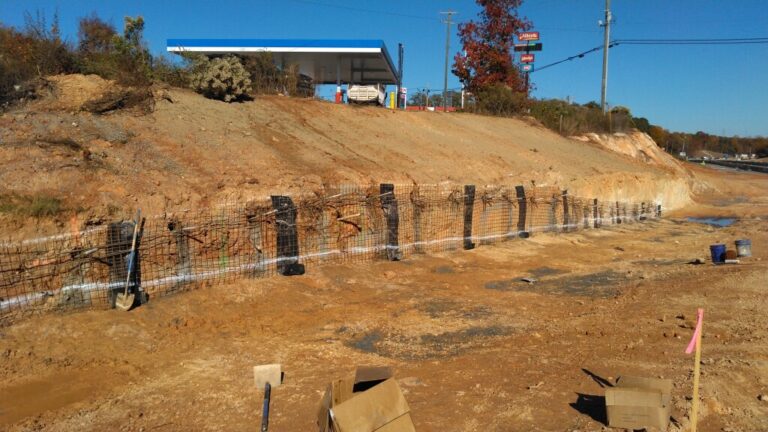What to Expect When Buying a Home in a Beach Town: Tips for a Smooth Move

Key Takeaways
- Beach towns offer lifestyle perks and unique challenges for home buyers.
- Understanding local climate, insurance, and community dynamics is crucial.
- Practical steps and expert advice can simplify the transition to coastal living.
- Researching infrastructure, amenities, and year-round activities is key for buyers.
- Market trends, seasonal demand, and sustainable living are important for prospective residents.
Table of Contents
- Beach Town Lifestyle Perks
- Unique Challenges of Coastal Properties
- Climate and Weather Considerations
- Navigating Insurance and Finances
- Choosing the Right Community
- Market Trends and Seasonal Demand
- Preparing for Your Move
- Creating Sustainable Coastal Habits
- Conclusion
Beach Town Lifestyle Perks
Moving to a beach town introduces an invigorating daily rhythm that’s hard to match elsewhere. The sound of waves and salt-kissed breezes becomes a part of everyday life, rewarding residents with opportunities for outdoor activities such as swimming, fishing, surfing, paddleboarding, and long walks on the shoreline. Local parks and trails invite exploration and healthy movement, making beach town living ideal for those prioritizing well-being and connection with nature.
The vibrant community atmosphere in most beach towns is enhanced by seasonal festivals, farmers’ markets, and events catering to locals and visitors. Shops and restaurants are often family-owned, thriving on the influx of tourists but remaining resilient beyond the summer season. For buyers interested in experiencing the coastal lifestyle firsthand, browsing homes for sale in Brigantine is an excellent way to explore available options in an authentic beachside community. Studies have shown that living near the ocean can support mental and physical health, with stress-reducing views, increased levels of vitamin D, and recreational options just outside your door. Many homeowners also report improved quality of life, nurturing hobbies such as sailing, bird watching, and creative arts, spurred by the beauty and serenity of coastal landscapes.
Unique Challenges of Coastal Properties
Beach living comes with its own set of unique challenges. The same salt air that keeps the surroundings crisp can also accelerate wear and tear on your property. Exposure to salty moisture and sand means windows, doors, roofs, and vehicles often require more frequent maintenance. Budgeting for regular repairs and investing in weather-resistant materials to safeguard your home is wise. While many enjoy the influx of visitors and the boost to local businesses during the high season, the sudden surge in tourism can impact privacy, peace, and traffic patterns. Understanding the rhythm of a beach town, from its off-season charm to its busiest months, helps buyers adapt easily.
Environmental preservation is another important consideration, as homeowners play a key role in minimizing erosion, protecting dunes, and supporting conservation efforts. Speaking with longtime residents can provide valuable first-hand insights into managing these realities. Equally important is assessing flood risks and storm history before purchasing a coastal property. Depending on their location, beach towns are vulnerable to flooding, high winds, and hurricanes. Reviewing FEMA flood maps and consulting local building codes ensures your chosen home is built to withstand the area’s climate challenges.
Climate and Weather Considerations
Weather-resistant construction techniques — such as reinforced roofing, hurricane shutters, and elevated foundations — can provide added peace of mind. It’s important to balance the allure of waterfront views with the need for practical preparedness, especially as climate patterns evolve.
Navigating Insurance and Finances
Insurance in beach towns often involves more than the standard homeowner’s policy. Buyers should anticipate policies for flood insurance, wind damage, and other region-specific risks, which may come at a higher premium than inland properties. Compare rates from several providers and investigate whether your intended home falls into a high-risk zone. Maintenance costs can also be higher due to the corrosive effect of saltwater and storm exposure. On the upside, some states offer property tax incentives for primary residences, making it worthwhile to consult a local real estate expert or tax advisor before making an offer.
Choosing the Right Community
Successful relocation starts with understanding the amenities and infrastructure available in each beach town. Research schools, health care facilities, grocery stores, and public transportation before committing. Reliable year-round services can vary widely, especially in smaller or more tourist-driven areas. Evaluate how well the community integrates full-time residents and vacationers. Some beach towns have tight-knit year-round populations, while others rely heavily on seasonal visitors. Consider your ideal balance of community engagement and solitude, and talk to locals to gauge the town’s character.
Market Trends and Seasonal Demand
Real estate in beach towns is often influenced by seasonal factors. The best deals on coastal properties may be found outside of peak tourist months. Market trends show that prices fluctuate based on demand, weather, and broader economic cycles. Timing your purchase can make a noticeable difference. Work with local agents who have experience with coastal transactions and who can advise you on when listings typically open up, how quickly homes sell, and what areas offer the best long-term value.
Preparing for Your Move
Step-by-Step Guide to Relocating
- Start by decluttering and downsizing, as many beach homes have compact storage options.
- Use a moving checklist specifically for coastal locations. This checklist covers items like surge protectors, beach gear, and weather-appropriate furnishings.
- Notify utility providers early and set up services — including storm alerts and local communications — at your new address.
- Transfer medical records, update your vehicle registration, and locate the closest clinics or hospitals.
- Connect with community organizations, neighbors, and social groups to ease the adjustment and quickly feel at home.
Creating Sustainable Coastal Habits
As a beach town resident, you play a role in preserving the unique ecosystem around you. Adopt sustainable habits such as minimizing single-use plastics, participating in local dune and beach cleanups, and supporting businesses that prioritize green initiatives. Stay informed through educational workshops or municipal newsletters focused on environmental stewardship. Even small lifestyle changes, like using native plants for landscaping or opting for energy-efficient appliances, contribute to a healthier coastal environment for future generations.
Conclusion
Buying a home in a beach town is about more than acquiring property — it’s embracing a lifestyle that blends natural beauty, community spirit, and unique responsibilities. By preparing for climate realities, navigating insurance and maintenance wisely, and choosing a community that matches your values, you can make the transition smooth and rewarding. With the right planning and resources, coastal living offers not only a home by the sea but a richer, more fulfilling way of life.
- 5 Signs It’s Time to Schedule a New Furnace Installation
- When Is the Right Time to Get My Furnace Repaired?
- Future-Proofing Paving: Modern Innovations That Are Transforming The Industry
- Innovative Ideas for Glass Shower Doors in Modern Interiors
- Tips for Spotting Roof Repair Needs Before They Escalate






